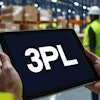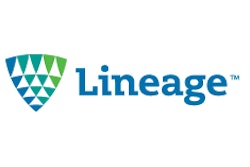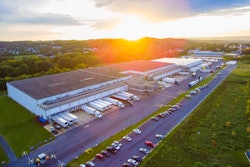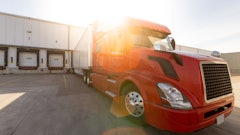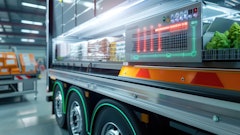
In recent years, the food industry has faced a number of exciting and dramatic changes to its supply chain, fueled mostly by rapidly shifting consumer demands. Consumers are increasingly focused on the food retailers’ “perimeter” real estate, which includes foods that generally require temperature-controlled storage throughout the supply chain.
The opportunity for those bold enough to disrupt the industry has not gone unnoticed, with e-commerce giants like Amazon recently entering the space and a rapid ascension of deep discount food marketers.
From the deployment of automation and robotics in warehouses to new innovative ways to manage energy, ideas that were once confined to brainstorming sessions and office whiteboards are now getting the significant investment they need to be deployed in the supply chain.
So, what innovations and trends are poised to have the greatest impact on our industry in the next three to five years? We have built up a healthy obsession for discussing this topic, so I will outline our current top three.
Trend #1: Turning Data Into Actionable Insights
By leveraging the significant work to date within Silicon Valley, the cold chain is already greatly benefiting from the power of data analytics, artificial intelligence and deep learning, which quickly and accurately collect data from multiple sources and then convert that information into actionable knowledge. Utilizing applications from the Internet of Things revolution, we can give our managers a more complete view of their operations and the extended logistics chain, enabling more precise control over the environment in our buildings.
For example, we deployed hundreds of temperature sensors throughout our Mira Loma, California facility to give our team constant visibility into the operations of the refrigerated systems. We can maintain a level of temperature control and efficiency that is unmatched in the industry—utilizing energy to cool the facility during non-peak periods, such as at night, and not doing so during more expensive daytime energy periods. This allows us to lower energy cost and place less stress on the local energy grid.
Trend #2: Improving Speed and Visibility
The market continues to demand faster velocity, better service and greater efficiency. Leading supply chain providers must deploy systems that can provide clients with product visibility and control in near real time.
The saying, “A chain is only as strong as its weakest link,” is especially appropriate in the supply chain industry. We must keep precise delivery windows with our carrier partners, both inbound and outbound, and ensure we leave a customer’s product in the same condition we received it.
At Lineage, we are deploying enterprise technology that helps us collaborate with both our shipper customers and our third-party logistics (3PL) partners to ensure that every product moves from the point of production to the point of purchase efficiently and with its integrity intact.
Trend #3: Complete and Seamless Outsourcing
Food suppliers are increasingly realigning their businesses to focus on what’s really core to their business: growing and producing food.
As a result, they are increasingly looking for high-quality partners to take over their supply chain needs and become seamless extensions of their internal teams. Partnering with supply chain solutions providers gives customers the ability to leverage progressive technologies.
Temperature-controlled supply chain providers can better focus on the logistical challenges of shippers and receivers across the modes of transportation, incorporating NVOCC services, expanding teams with experienced professionals, sharing productivity enhancements, and incorporating the latest technology.
With so much change underway in all facets of the cold chain industry, one cannot help but be excited for what lies ahead, and we all should be committed to doing our part to bring these exciting changes to reality.
Greg Lehmkuhl is CEO of Lineage Logistics, a leading international warehousing and logistics company.




